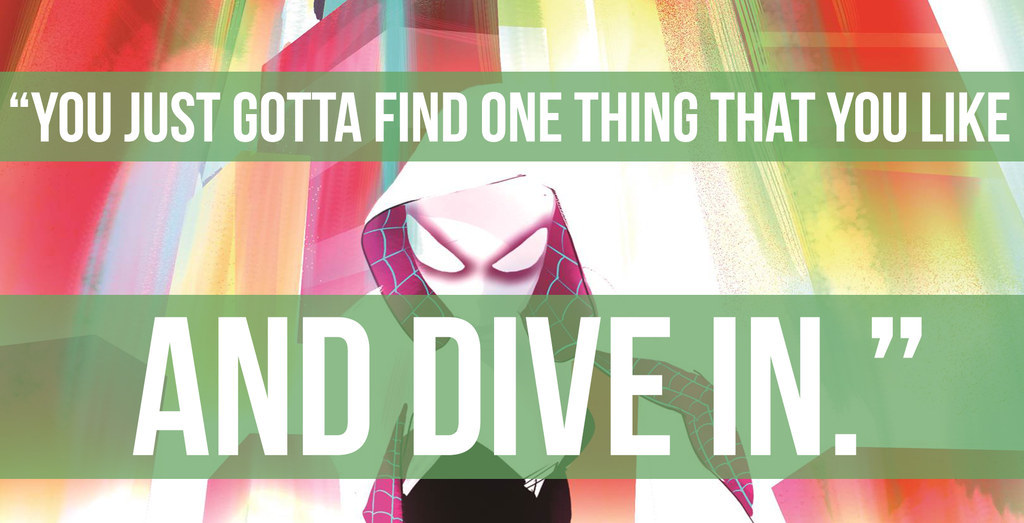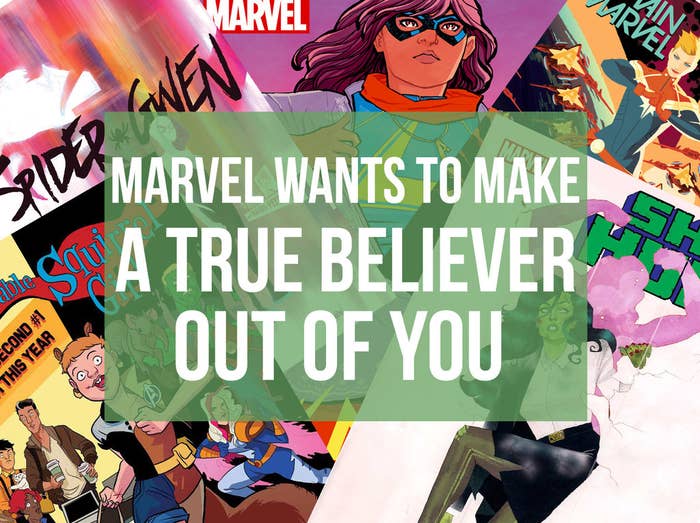
With True Believers' one dollar comics, Marvel is reprinting popular titles like Ms. Marvel, Black Widow, Captain Marvel, Thor, and more to provide a jumping-off point for new readers to enjoy their female-led content.
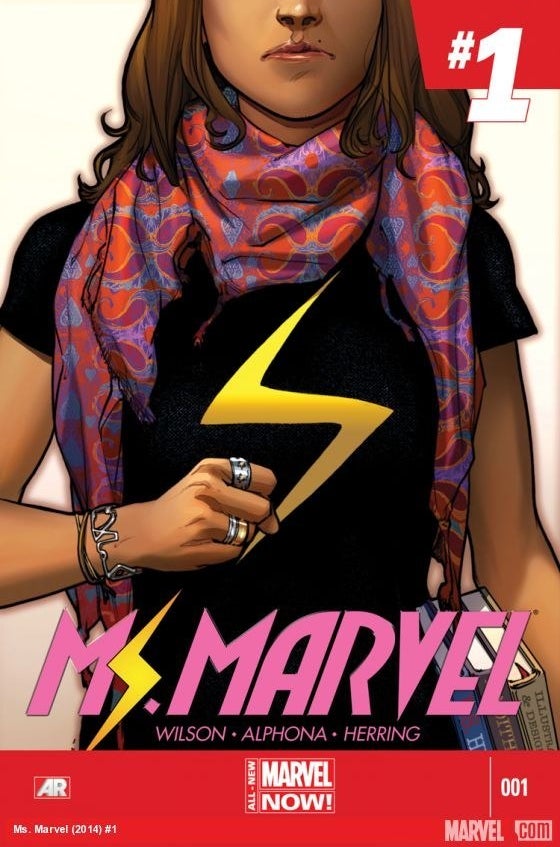
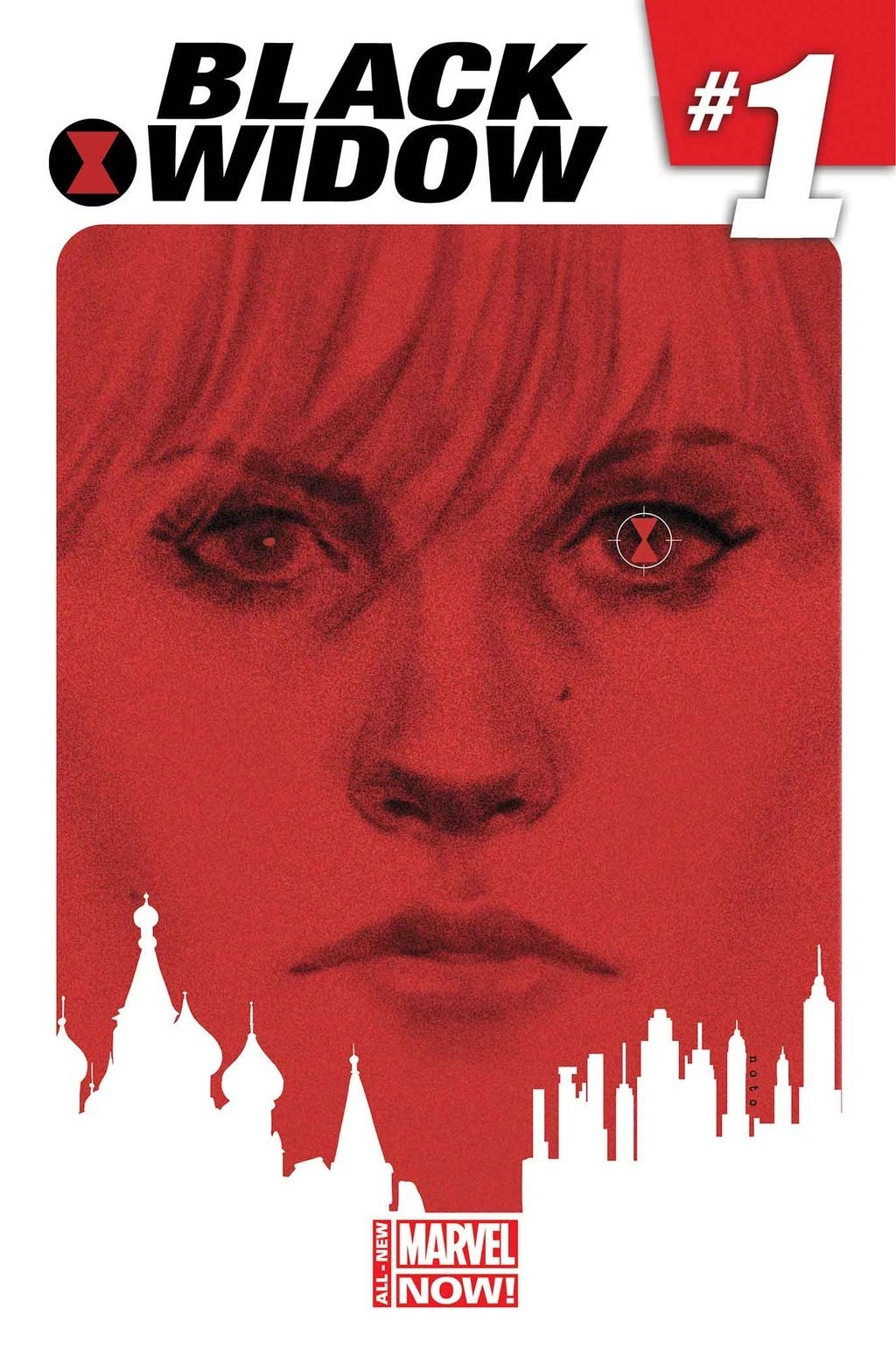
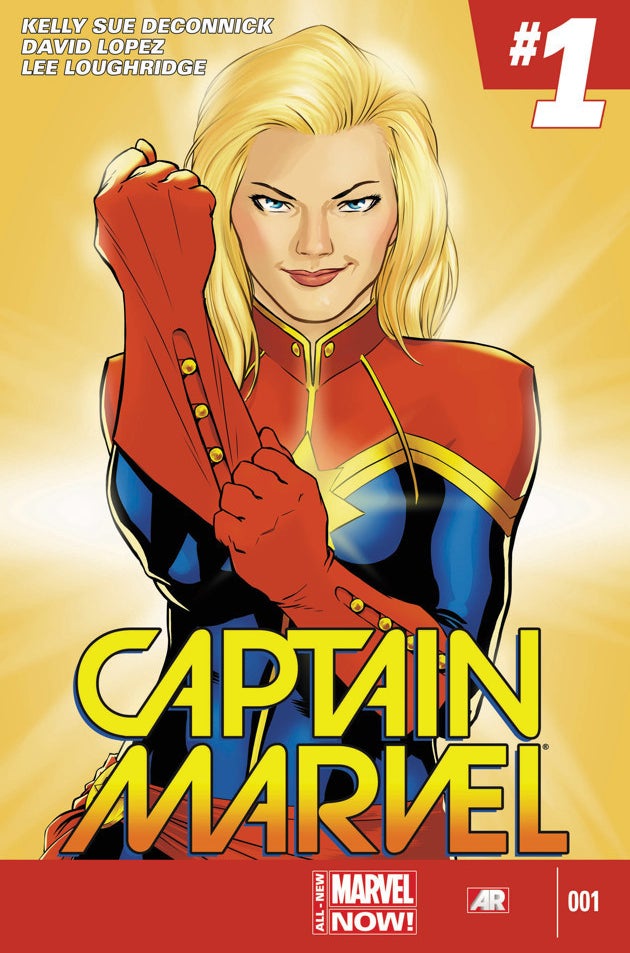
We caught up with Sana Amanat, director of content and character development at Marvel Comics, to talk about the shifting face of the comic book fan and what that means for Marvel.
Can you tell us a little bit about True Believers and how it came about?
Sana Amanat: True Believers is a collection of some of our best-selling and critically acclaimed female-led title series. These are actually some of our newest, too; a lot of these titles have come out in the last few years alone. And really, it's just meant to be sort of a celebration of the break-out hits Marvel has put out in the last couple of years, and also to highlight that there are a lot more female characters and female fans out there that we want to highlight and pay attention to — and give them something that they can enjoy as well, even though these characters have gained celebrity status from all kinds of fans. So we're very excited about it, this is our way of celebrating these characters.
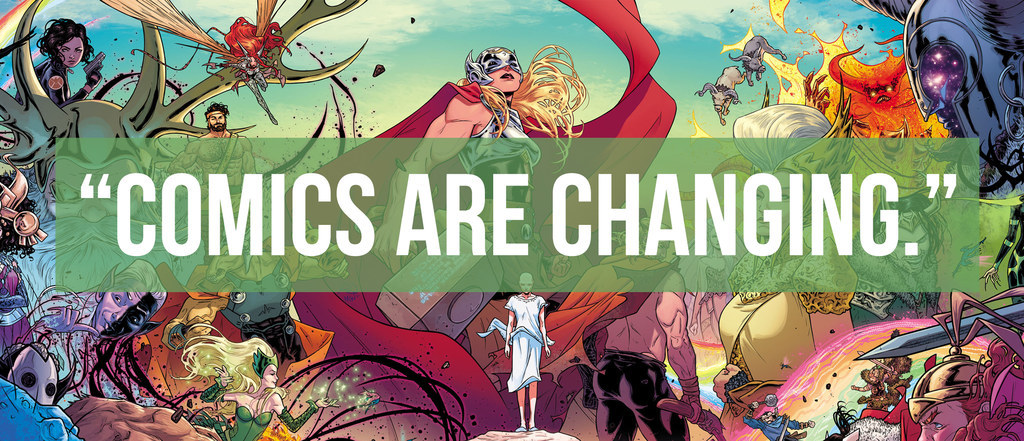
Marvel's had this drastic uptick in its female fanbase in the past few years. What has this meant for Marvel as that's unfolded, and do you have any predictions of what it'll mean going forward?
SA: [The growth of Marvel's female audience] really highlighted something that we've known for a long time, which is that comics and the content that we have is really meant for everyone. It's been, unfortunately, an insular community just because that's sort of who was traditionally reading comics, at least for the last 40 to 50 years, in terms of the young boy, or older male, or something like that. For us it just means that comics are changing, comics are changing for the better in some senses, because of the fact that there's a lot more diversity — not just in terms of the characters we're putting out there, but also the types of content that we're putting out there. And that means that we do have something for everyone. You start having all different types of readers and a divergent fanbase because of the fact that our content sort of reflects that, reflects the diversity that's out there. I'm very excited because it means we have more creative opportunities — we can push the envelope a little bit more, and do things like put Ta-Nehisi Coates on Black Panther.
It's exciting for us because it's not just the films that are becoming more mainstream, it's also our comics. And that's really where it all starts; the history of Marvel started on the page, 76 years ago.
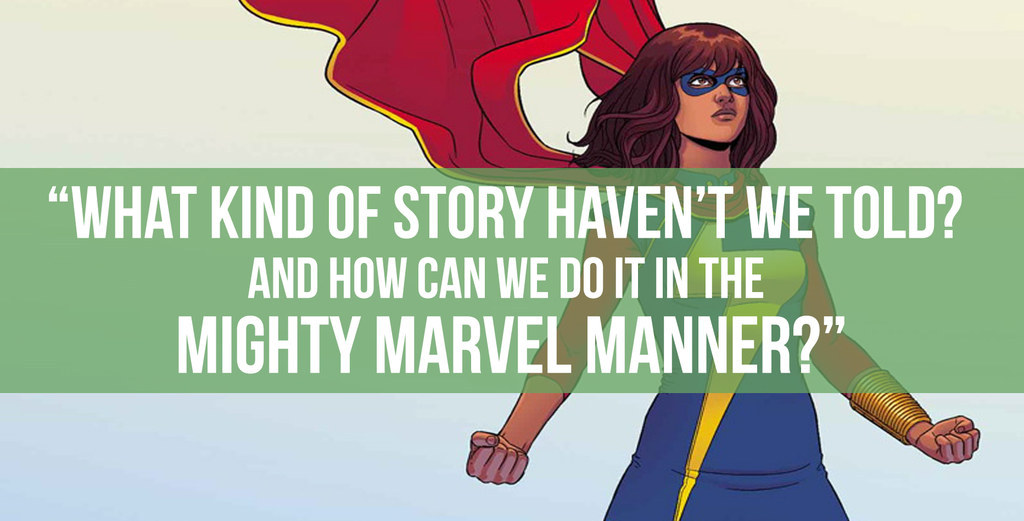
You've said before that you've experienced a lot of doubt in your field before because of the old idea that comics have to be told one way, for one kind of reader. How do you go about pivoting that in another direction? What are the first steps?
SA: I think fundamentally you have to look at each of the characters that you have and what kind of story you want to tell. For a lot of people here it's fundamentally 'what kind of stories do I like reading?' and also 'what isn't out there, what kind of story haven't we told, and how can we do it in the Mighty Marvel manner — in a way that's reflective of what's happening out in the world, but also sort of sublimely fantastic.' Those are the things that we have to start thinking about, first as editors, and then simultaneously as brand managers of this content that's existed for 76 years, and trying to find ways to refresh them so that we can start bringing in new audiences, or making our current audiences happy. There are a lot of different things you have to start thinking about. For example, with Ms. Marvel: For us it was very much about trying to tell a story — a very traditional Marvel story — through the lens of a very nontraditional Marvel character. And it was such a simple equation, and it happened to have such amazing results because of the simplicity, I think.
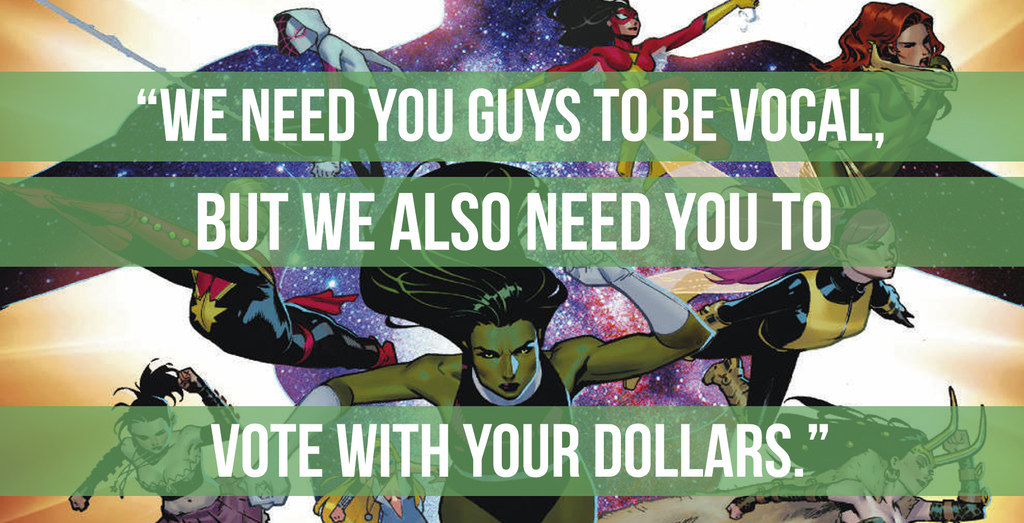
What is it about these particular characters that made them the right candidates for True Believers? Are your fans an inspiration for creating new characters, or is it vice versa, where fans are becoming more vocally thirsty for quality female characters as places like Marvel show them more and more of the possibilities?
SA: I think it kind of goes hand-to-hand; I don't think one is more powerful than the other. Fundamentally, though, as storytellers, we do have to start with the character, and we do have to start with the story — if there's an interesting perspective there, or an interesting story to tell, that's sort of step one for us. With Captain Marvel, for example, when Kelly Sue wanted to do a Chuck Yeager version of Carol Danvers, that was really fascinating for us. And then the next step is evaluating what that means — what that means for a new generation of comics readers, and how she needs to be perceived, foremost physically, which is where the costume change came up.
So each of these characters, particularly in [True Believers], has this unique identity and checks in to a very different kind of mission. I think that's something that every kind of reader can champion in their own way, because of the fact that they have these distinct stories and drives and motivations for themselves. You guys can go in and like Captain Marvel, or Thor — or you can like both, you could like every single comic that's in here. I think that reflects the content diversity that Marvel has, and that's sort of what is working for us.
As people started becoming a lot more vocal — and you can thank social media — what's really cool about the comics industry is that as big as it gets it's still a small community in some senses. We're hearing what people are excited about, and we are definitely responding to it. At the same time, we need people to be buying those books. I remember one of the first Women Of Marvel panels that I had; the questions that were posed to us were 'Why aren't there more female-led titles, what's going on?' And my response to them was 'Look, that's what we want, we want more female-led titles, but unfortunately [at that time] no one was going into the stores and buying them. People want things for free, and we can't fundamentally run a business like that. We need you guys to be vocal, but we also need you to vote with your dollars.' And that's really what's happened in the past few years, aside from the dialogue about it: People are buying and reading our content, so we can make more of it.
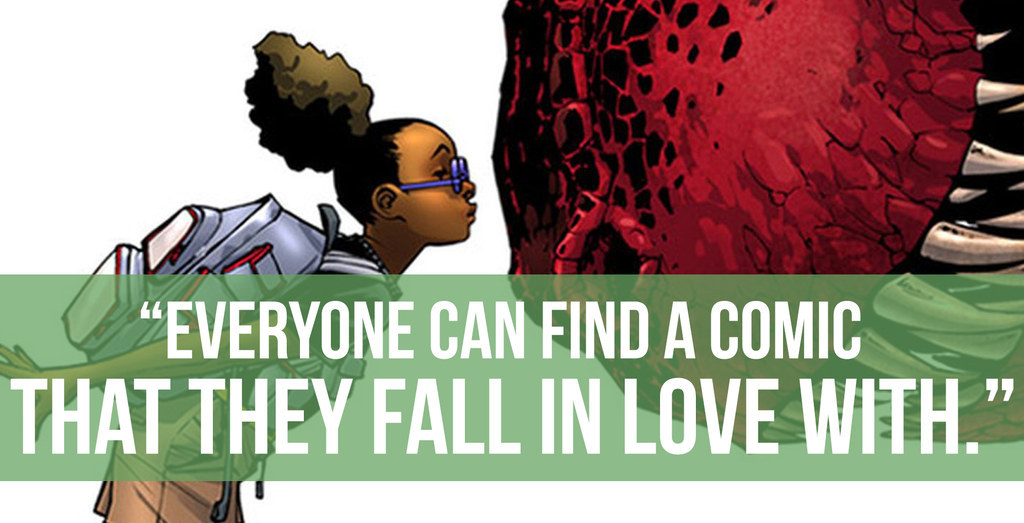
What do you hope for when you think about the future of Marvel across all platforms?
SA: It's what we're trying to do every day, step by step: trying to show people that our comics and our characters and our content is trying for a very large audience, and a very international audience. Everyone can find a comic that they fall in love with. We want to continue to do that, and if that means creating a new character or freshening up that old character so that we can get new readers, we will do that. I think Marvel has proven itself to be constantly experimenting and trying out new formats, and for us I think that's something we are continuing to do. And I hope that when I have children it's going to be extremely commonplace for them to be wanting to read a stack of comic books before they go to bed at night. It's as traditional, and in some ways, as American as baseball to me. It's definitely something that you can hand down generation to generation. And I think that this resurgence in the popularity of comics is something that is here for a long time.
What Marvel comics property would you fangirl the most to see make the jump to the big screen?
SA: Oh, Captain Marvel, for sure. That's happening, but I definitely fangirled out when I heard about it.
That was such a huge moment.
SA: It was a huge moment, and it was exciting, too, because Captain Marvel only came out in, what, 2012? So for that turnaround, [for when it's scheduled for release] it'll be six years from when this incarnation is out on the silver screen. So for me that was a big moment, not just from a professional standpoint of having been an editor on that book, but really just as a person who loves comics. I was definitely flipping out.
What is your favorite non-Marvel thing right now? TV show, book, movie, whatever?
SA: I watch so much TV, it's so bad. What am I loving? I love Narcos, that's really dark. That's the opposite of Ms. Marvel. I'm really loving Empire, I just started watching that show. I love The Mindy Project. Mindy Kaling is an inspiration, she's amazing. What else do I like? I like Scandal a lot. I definitely watch a lot of television, but I call it research. I think it's good for an editor to watch a lot of television.
Dip your toes in all different kinds of stories.
SA: Yeah, exactly, and serial storytelling in particular. And I'm loving Agent Carter, actually, I think it's really good. I'm excited about the second season.
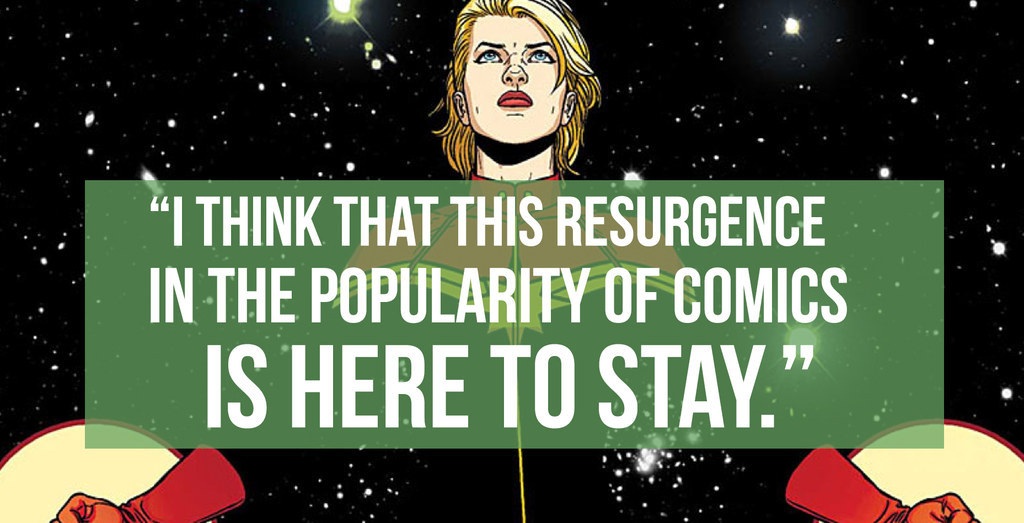
So I'm actually a pretty relatively new comics reader in the scheme of things — Ms. Marvel's debut was my entry point. The day it was announced is the day I was like, OK, I'm gonna jump into this world.
SA: Oh, that's awesome!
So what's your advice for people getting into comics for the first time right now?
SA: We do this podcast called the Women Of Marvel podcast, an extension of our Women Of Marvel panels. And we have a lot of comics newbies getting into comics now, trying to figure out where to start, and what to do, and my advice to them is always understanding that it can be overwhelming when you're looking at the Marvel Universe and there's so much out there. Where do you start, what's the most important thing? And I always say, 'Look, there is a lot of different content out there. You have to look at what kind of stories you like.' And also, if there's a particular type of character you're interested in, go find that book. For you it could be Ms. Marvel, for others it could be Captain Marvel, for somebody else it could be the X-Men, or the new Thor, or Squirrel Girl. There's so much out there, and a good place to start is Marvel.com, which showcases a lot of our different characters and series that are out there. But also, our Marvel app does a really good job of searching content by character. So if you do like Squirrel Girl, click on her name and it'll show you exactly what books are out there. It also really depends what genre of stories you like. If you like teen high school drama, maybe there's a Ms. Marvel for you, or The Runaways. If you like more noir types of stories, maybe you should pick up a Daredevil or a Punisher or something like that. There is genuinely something for everyone. If you've got a buddy who's into comics, ask for their recommendations. Walk into a comics shop and as for their recommendations, say, 'Hi, these are the things I generally like, do you have a recommendation?' Chances are they will give you so much. A really good easy starting point would also be the Ultimate books, like Ultimate Spider-Man. Those are pretty cohesive; they happen in an alternate universe but they're a really good synopsis of what the Marvel universe feels like. But there's a lot out there. You just gotta find one thing that you like, and dive in.
